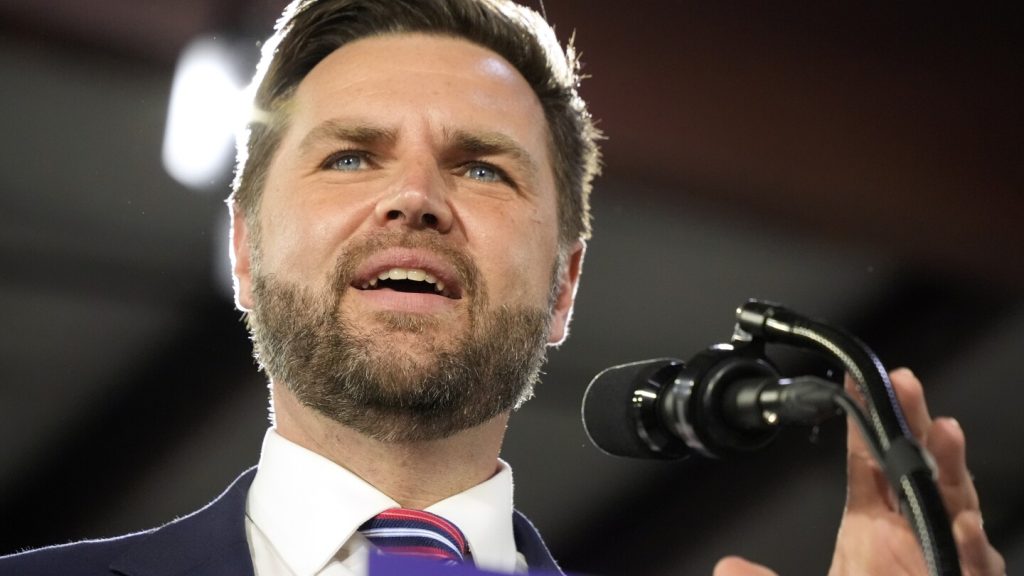Ohio Senator JD Vance converted to Catholicism in 2019, finding spiritual fulfillment that he could not achieve through his Yale education or career success. This conversion also led to a political transformation for Vance, as he began to view social issues described in his memoir, “Hillbilly Elegy,” through a Catholic lens. Vance aligned himself with a network of Catholic intellectuals known as postliberals, who advocate for a muscular government that promotes the common good and aims to overthrow liberal elites.
While Vance shares some traditional Catholic conservative views such as opposition to abortion and LGBTQ+ rights, he also aligns with the postliberal belief in a strong government controlled by their movement. This includes the desire for regime change to replace current elites with their own vision of the common good. Vance has expressed support for policies that would increase childbearing and reshape institutions such as universities to serve their agenda. Despite his associations with postliberals, Vance is not necessarily in agreement with all of their beliefs, particularly those of a subset known as integralists.
Vance has publicly praised the work of prominent postliberals and has attended events where they have spoken. While some critics raise concerns about the historical connections of postliberalism to authoritarian regimes, Vance has attempted to downplay the impact of his Catholicism on his policy-making. He has expressed the need to allow for diverse moral views in a democracy and supports reasonable exceptions for issues such as abortion. Vance’s influences extend beyond Catholic postliberalism to include Trump-style populists and other mentors like tech billionaire Peter Thiel.
It is uncertain what role postliberals would play in a potential Trump-Vance administration, but their ideas encompass a range of policies aimed at promoting the common good. These include encouraging childbearing, easing church-state separation, and implementing regulations on pornography and business practices. Vance has shown support for Hungarian Prime Minister Viktor Orban’s policies, particularly regarding subsidies for families with children. Despite his alignment with some postliberal goals, Vance’s religious journey began with a familial introduction to Christianity and a personal realization of the need for grace in his life.
As Vance continues to navigate his political career and align with various movements, his association with Catholic postliberals raises questions about the future direction of his policy priorities. While he may not fully adhere to all postliberal beliefs, Vance’s engagement with this network suggests a willingness to explore alternative approaches to governance and social issues. As the 2024 election approaches, Vance’s evolving views and affiliations will likely shape his political trajectory and influence his policy decisions.


